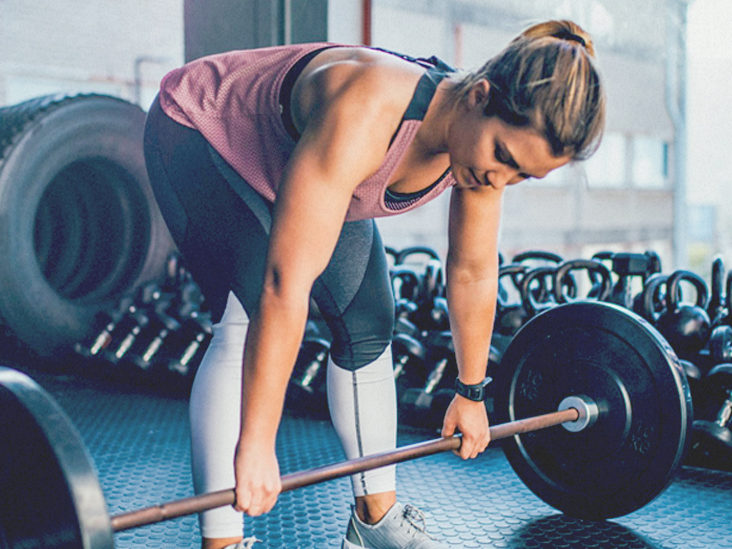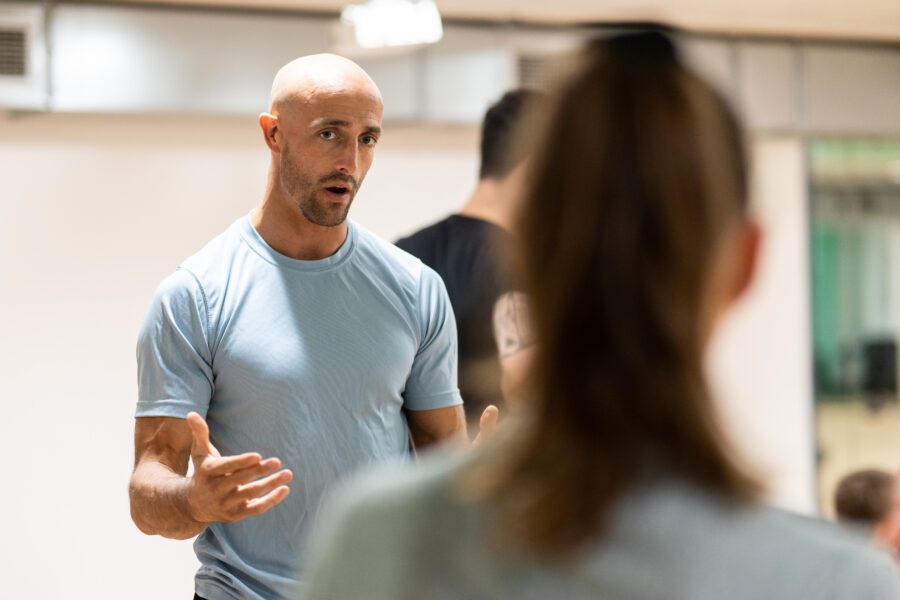
For beginners, it is important to focus on compound movements. This is to allow the muscles to get more work without overloading them. Allow yourself at most 48 hours to recover from your workouts. Additionally, beginner athletes shouldn't attempt to target each muscle group individually. This will hinder muscle building's ability to respond and may require longer recovery times. For beginners, compound exercises work best because they target multiple muscle groups at once and can be used efficiently throughout the body.
10 Best Full-Body Exercises for Beginners
Beginners should not attempt to do complicated moves. Instead, they should focus on whole-body workouts that target all muscle groups. Also, it is important not to strain your body and to stop whenever you feel discomfort. To help your body recover from a workout, stretch it. For beginners, it is important to stretch properly after working out in order to prevent injury.
The whole-body workout can be done with no equipment and takes about half an hours. They also help to reduce fat and calories, improve muscle strength and stability, and increase muscle tension. Full-body workouts can be convenient because you can target multiple muscle groups simultaneously.
Focus on compound movements
For beginners, it's important to focus on compound movements, which are movements that involve more than one major muscle group. Because they engage more muscles at one time, compound moves can help you save both time and effort. Compound movements can be difficult for beginners due to the need for coordination and good form. Here are some tips and tricks to improve your form.

The carry is a great full-body exercise for beginners. The carry works all major muscle groups, including those in the shoulders and arms. You can use dumbbells as well as a barbell. You can do this exercise standing straight up if you want to hit all three deltoid ears.
Full-body exercises can help you avoid back pain
If you don't know what to do, full-body exercises can be very painful for beginners. For pain prevention, make sure you are using the right form and weights. A bench or wall can also be used to support the body. While extending and lowering your body slowly, keep your head and shoulders off of the floor. This can reduce back pain.
You are strengthening your back muscles by doing upper-body lifting. It's important to use the right technique so that you don't place unnecessary strain on your back joints, ligaments, and muscles. Remember to perform at least six repetitions, and two sets of exercises. If you have back pain, be sure to do these exercises from a semi-reclined angle.
Start with a 3-day training program
To get the most out of your workout, try to do three days of full body exercises each week. This will allow for enough time to recover between sessions. An ideal split would be Monday through Friday with a rest day in between. The weekend is a time to recover and relax, so be sure to plan those days well. We all know that life is unpredictable and you might have to miss a session due to an unforeseen circumstance. You can always make up the day if this happens.
Working out requires a warm-up. For beginners, it is best to avoid lifting heavyweights. This will prevent injury and cause form problems. Mobility exercises that target the hips, knees and shoulders are important as well. Be sure to correct your form, and not compare yourself with advanced lifters. Remember that you can improve your technique by practicing more.

Avoid repetitive motion injuries with full-body exercises
For beginners, full-body exercises can be used to prevent repetitive motion injuries. These injuries can cause pain and interfere with your daily life. Common examples of repetitive motion injuries include bursitis and tendinitis. These conditions can occur when the joints become inflamed due to repetitive motion exercises and overuse. They can affect any joint, even the knee and ankle. Tennis elbow, runner’s knee and swimmer’s shoulder are other examples of repetitive motion injury.
Repetitive movement is the most common reason for RSIs. Repetitive movement is necessary for many different activities. For example, swimmers can experience repetitive motion injuries from swimming every day. These injuries can be avoided by practicing good form and strengthening their core muscles.
FAQ
Is it safe to exercise when the temperature is below freezing?
Exercise outside whenever possible. While the air temperature is a major factor in determining whether or not it's safe to exercise outside, it's not the only one. Visibility, wind speed, humidity and precipitation all play a part. Wear layers of clothing to keep you dry from rain and windchill when you exercise outside in inclement conditions.
How does caffeine impact my sleep?
Caffeine effects how fast it takes to fall asleep and how much sleep you get. Caffeine induces drowsiness which makes it easier to fall asleep. The downside is that caffeine keeps you awake longer making it harder for you to fall asleep again. If you drink coffee or energy drinks right before bedtime, try drinking them later in the evening instead.
Can I exercise after eating?
It all depends on the type of exercise that you are doing. Avoid strenuous exercises after meals. It could cause stomach cramps. Focus on light aerobic activities such as biking or brisk walking.
Do I need to eat before working out?
No. You don't have to eat before you start working out. If you feel hungry after working out, it is a good idea to have a light snack like yogurt or fruit.
What does nutrition do to your body?
Your body functions properly when you have the right nutrition. To ensure that your body receives adequate nutrition, it is best to eat a balanced meal with lots of fruits and vegetables, lean protein, whole grain, as well as healthy fats.
What does exercise do for your body?
Exercise can help you lose weight. Build muscle mass, increase energy, reduce stress, and improve quality of your sleep. Exercise has many benefits, including improved moods, higher self-esteem, greater productivity, and lower risk of heart disease.
Are there any exercises I shouldn't do?
Before you start any new exercise routine, it is important to consult your doctor. Some people are unable to exercise due to injuries. Some activities may require special equipment, or training. Swimming, for example, requires swimming suits and access to the pool.
Statistics
- According to the Centers for Disease Control and Prevention, chronic diseases cause 7 out of 10 deaths in the U.S., and treating chronic diseases accounts for 86% of U.S. healthcare costs. (mana.md)
- Globally, 81% of adolescents aged 11-17 years were insufficiently physically active in 2016. (who.int)
- Globally, 28% of adults aged 18 and over were not active enough in 2016 (men 23% and women 32%). (who.int)
- Adolescent girls were less active than adolescent boys, with 85% vs. 78% not meeting WHO recommendations of at least 60 minutes of moderate to vigorous intensity physical activity per day. (who.int)
External Links
How To
How to motivate yourself for a healthy fitness routine
A fitness routine is a series of exercises that are performed over a specified time period. It can help people tone and build muscle. Regular physical activity increases cardiovascular health and reduces risk of heart disease and stroke. Regular exercise has psychological benefits as well. It improves self-esteem, self-confidence, mood, energy, sleep quality, social interaction, and self-confidence.
Why do you want to follow your own fitness routine?
You should consider a fitness regimen if you are looking to lose weight, get healthier, and be more fit. What makes a fitness routine so important? Let's see!
What does it mean, to be a part of a fitness program?
It means performing some form of physical activity like running, cycling, swimming, yoga, martial arts, etc., at least three times per week. You don't necessarily have to spend hours doing this; just 30 minutes of exercise is enough to burn calories and keep you healthy. It doesn't matter how long you do it for, the most important thing is to stick with your plan. Don't be discouraged if you don't make it through a certain day. You can always start over the next time.
How much time will I need to devote to my workouts?
It all depends on how busy your schedule is. A moderate workout takes 20-30 minutes. If you are new to exercise, start slowly, with 5-10 minutes at first. Once you feel comfortable, increase your duration slowly.